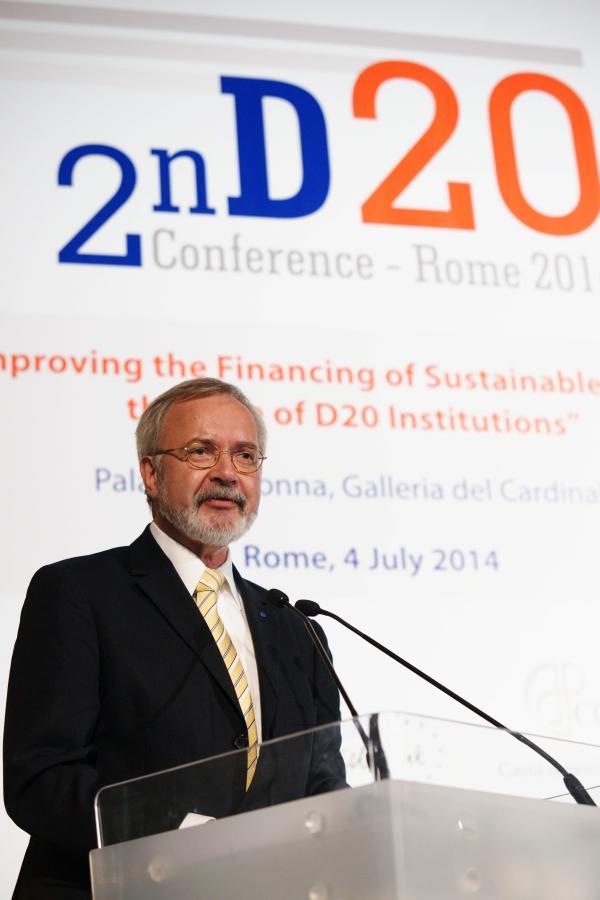
The National Financial Institutions of the G20 countries (“D20”[1]) and the Multilateral Development Banks (MDBs) will work closely together to support economic growth, create jobs and improve productivity. This is the outcome of the second informal meeting of the Heads of the D20 and MDBs in Rome, which was hosted by CassaDepositi e Prestiti (CDP) and the European Investment Bank (EIB)[2]. The joint action is following the priority of the Australian G20 Presidency to foster investments, particularly in infrastructure and small and medium-sized enterprises, in order to boost global growth.
The need to crowd-in private investors was acknowledged as top priority, due to the high financing needs. The relevance of the D20, as a tool to foster growth and jobs, supports the view that the D20 institutions shall be represented in the G20 work as the implementation bodies of agreed policies.
CDP Chairman Franco Bassanini commented: “The D20 is a group of diverse financial institutions, which however share a common mission to support the converging public policy objectives of the members of the G20, their respective shareholders. Working together, the members of the D20 and the Multilateral Banks offer considerable financing and expertise and can thus have a strong capacity and impact in supporting the priorities set by the G20.”
EIB President Werner Hoyer said: “Although we see improvements in growth forecasts for advanced economies, many countries are still facing important challenges. Support, in particular for infrastructure investment and long-term finance, therefore remain a key priority as they are the main drivers of growth and employment. ”He added: “The multilateral institutions not only play a significant role in financing but also in providing policy advice, sharing knowledge and promoting capacity building. Given their size, their role and their experience, MDBs can contribute to set standards and provide leadership working in close cooperation with Member States and National Public Banks”
While the G20 Presidency acknowledges that there is no shortage of global funds, there are challenges in channelling them to productive investments. As governments cannot finance large global infrastructure needs on their own, G20 nations will have to deliver measures that aim to boost investment by the private sector. President Bassanini emphasised: “During our meeting we focussed particularly on the importance of attracting private long-term finance to infrastructure and SMEs to use the scarce public resources in the most effective way and to enhance the D20 catalytic role.”
The G20 are identifying reforms to remove constraints to private investment by establishing sound and predictable policy and regulatory frameworks and emphasising the role of market incentives and disciplines. These, along with other actions to promote long-term private sector investment, will maximise the impact of public sector capital expenditure. President Hoyer said: “We have the common vision to move beyond traditional long-term lending and reinforce our catalytic role for commercial financing on a larger scale and thus provide a necessary bridge between governments, projects sponsors and capital markets.”
[1]G20 financial institutions with a development or public mandate (“D20”)
[2] CDP and EIB hosted the Rome conference in absence of a national promotional bank in Australia, which holds currently the G20 presidency. The next D20 meeting will be held in 2015, in Turkey. The first D20 meeting in 2013 was organised by VEB under the aegis of the Russian G20 presidency.

Photographer: EIB ©To be defined
Download original

Photographer: EIB ©To be defined
Download original

Photographer: EIB ©To be defined
Download original

Photographer: EIB ©To be defined
Download original

Photographer: EIB ©To be defined
Download original